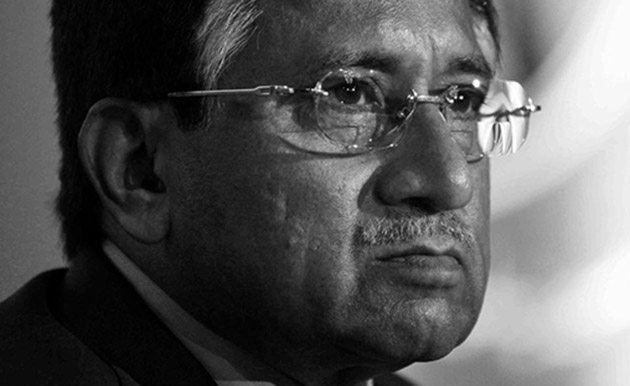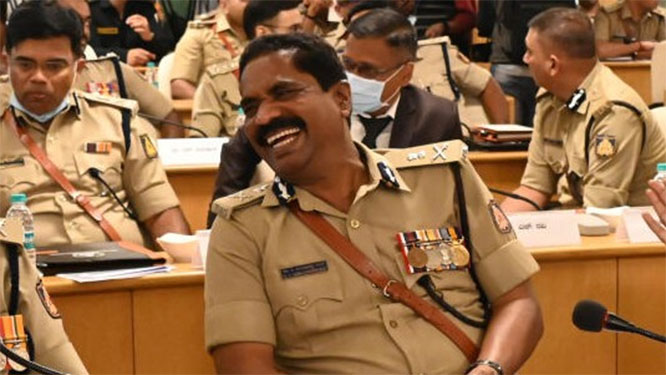
Dubai, Feb 5: After a long bout of serious illness, former Pakistan President and chief of Army staff Pervez Musharraf died today at the American Hospital in UAE's Dubai after spending years in self-imposed exile. He was 79.
The Consulate General of Pakistan, Dubai, has issued a no objection certificate (NOC) for the repatriation of the body of former president General (retd) Pervez Musharraf. In order to repatriate the body, a no objection certificate is required from the Consulate General of Pakistan.
Mr Musharraf's organs were malfunctioning because of an ailment called amyloidosis. This disease affects connective tissues and organs, inhibiting normal functioning. It's a rare disease caused by a build-up of an abnormal protein called amyloid in organs and tissues throughout the body.
Facing charges back home for the assassination of former Prime Minister Benazir Bhutto in 2007, Mr Musharraf has been living in Dubai for the last eight years. He had earlier expressed his desire to spend the "rest of his life" in his home country, and wanted to return to Pakistan as soon as possible.
The former President was the tenth president of Pakistan after a successful bloodless military coup in 1999. He served as the 10th Chairman Joint Chiefs of Staff Committee of Pakistan (CJCSC) from 1998 to 2001 and the 7th top general from 1998 to 2007.
He was known as the architect of the Kargil war, the man who ordered his soldiers to enter India to cut off Leh from Srinagar.
In the war that followed in the summer of 1999, Pakistani soldiers, whose presence he denied, were decimated in the high mountains of Kargil. It was a catastrophic military failure for Mr Musharraf, who had pushed forward with the plan, keeping his Prime Minister Nawaz Sharif mostly in the dark.
Almost unbelievably, two years after Kargil, Mr Musharraf emerged stronger than ever.
Nawaz Sharif, who tried to prevent Mr Musharraf from returning to the country while he was on an official tour of Sri Lanka, was arrested, jailed, and subsequently sent to exile.
With the support of his Army, and in a bloodless coup, Mr Musharraf appointed himself President of Pakistan in 1999.
Pakistan's start-and-stop democratic process would grind to a halt for the next 7 years.
It was as President that Pervez Musharraf came to India in July 2001.
Born in New Delhi in 1943, Mr Musharraf was four years old when his parents joined the mass exodus by Muslims to the newly-created Pakistan. His father served in the foreign ministry, while his mother was a teacher and the family subscribed to a moderate, tolerant brand of Islam.
He joined the army at the age of 18, and went on to lead an elite commando unit before rising to become its chief. He took power by ousting the then prime minister, Nawaz Sharif, who had tried to sack him for green lighting an operation to invade Kashmir, bringing Pakistan and India to the brink of war.
On March 9, 2007, Mr Musharraf unconstitutionally suspended Pakistan's then Chief Justice, Iftikhar Muhammad Chaudhry, triggering massive political protests that weakened the military ruler.
Following elections the next year, he was pressured by political parties to quit as President in August 2008. In November that year, after the 26/11 attack, India-Pakistan ties deteriorated.
The General was later arrested on charges related to the arrest of judges.
Under house arrest, Mr Musharraf faced a deluge of cases, and was accused of subverting the constitution. He was initially prevented from leaving Pakistan, but in March 2016, his name was removed from the exit control list, and he was allowed to travel to Dubai.
In December 2019, a special court in Pakistani sentenced General Pervez Musharraf in absentia to death for suspending Pakistan's constitution in 2007, a symbolic order since Dubai does not have an extradition treaty with Pakistan.
Mr Musharraf challenged the order and in January 2020, the Lahore High Court annulled the death sentence and held the earlier trial to be unconstitutional.








Comments
Add new comment